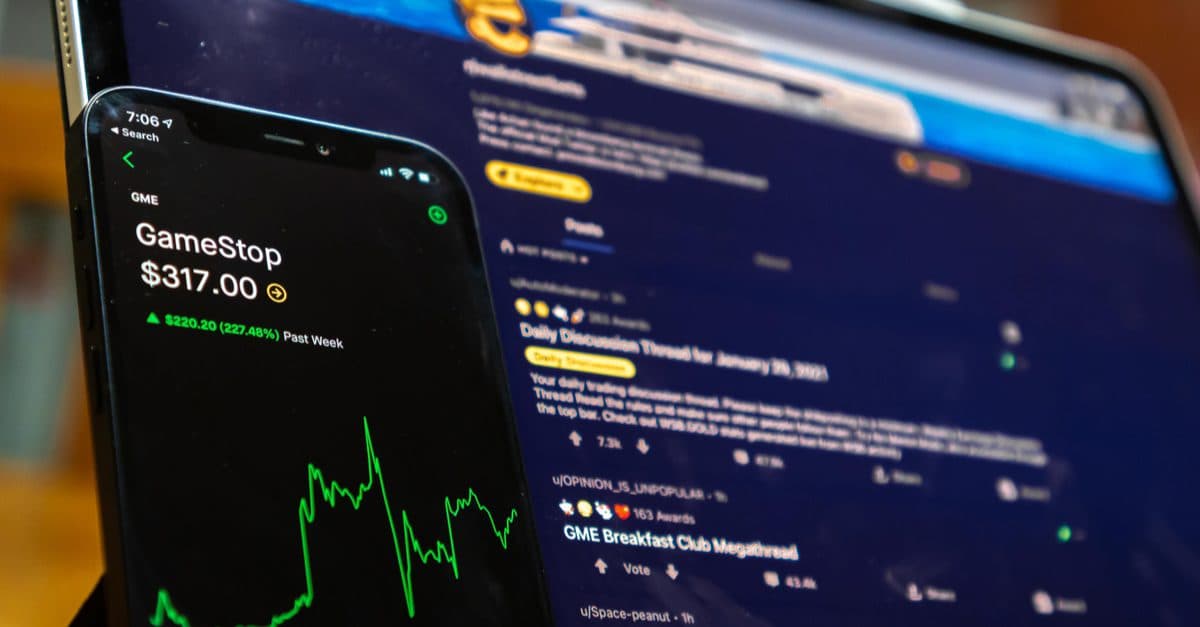GameStop Frenzy Funneled $142M From Citadel to Robinhood
The total amount of $331 million is more than triple the $91 million Robinhood brought in from payment for order flow in the first quarter of last year.

Source: Shutterstock
- Payment for order flow brought in $331 million to Robinhood during its first quarter
- Citadel captured on average between 30% to 40% of order flow for options and stock trading during the height of the Wall Street Bets/GameStop mania
Robinhood Securities profited heavily from the winter trading mania according to new SEC filings.
In fact, Q1 routing disclosure reports from Robinhood, filed late last week under SEC rules 606 and 607, show its payment for order flow business generated the company $331 million. Of the $331 million, $142 million came from Citadel Securities, an investor in Melvin Capital Management. Options trading generated approximately $90 million.
The quarterly total from payment for order flow is more than triple the $91 million Robinhood brought in from the first quarter of last year. During that time, Robinhood’s options trading business totaled approximately $28.5 million from Citadel.
The Robinhood/Citadel arrangement
Payment for order flow involves routing orders to high-speed traders for fulfillment, a more common practice today as consumers become accustomed to free trading on brokerage apps.
Citadel’s arrangement with Robinhood is also commonplace. It handles brokerage for many of the best-known trading platforms. According to data compiled by Quartz, Citadel captured nearly 13% of all of the stock trading volume in the US in December 2020.
Critics of the practice say that it perpetually front-runs retail traders so they are never able to get ahead of institutional traders like Citadel’s trading arm, or firms like Melvin Capital Management, which initially placed a short against GameStop.
In mid-February, in the aftermath of the GameStop frenzy, lawmakers hauled in Ken Griffin, founder and CEO of Citadel, to address allegations of a conflict of interest between different arms of Citadel.
In addition, lawmakers alleged that Melvin Capital Management told Citadel to put a stop to trading of GameStop and alleviate pressure on the building short squeeze.
“The short interest in GameStop was exceptional and I’m not sure it’s worth us delving into legislative corrections for a very unique situation in terms of the extreme sides of the short interest,” Griffin is quoted as saying.
In the end, allegations of Citadel’s conflict of interest with Melvin Capital Management didn’t transform into anything material, but the company proves to be a stalwart and growing source of revenue for Robinhood.






